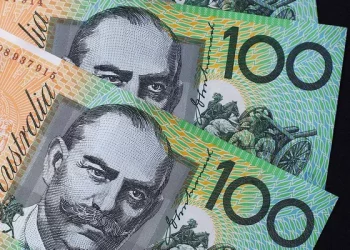Currency exchange rates play a vital role in the global economy, impacting international trade, tourism, and investments. An exchange rate refers to how much of one currency you can obtain with another. For instance, converting Thai Baht (THB) into Pounds Sterling (GBP) requires checking the current exchange rate between these two currencies. These rates fluctuate constantly due to several economic factors such as inflation, interest rates, political stability, and market speculation.
Factors Influencing Exchange Rates
- Interest Rates: Central banks adjust interest rates to control inflation and stabilize the currency. A higher interest rate generally attracts foreign investors looking for higher returns, which increases the demand for the domestic currency and raises its value.
- Inflation: Low inflation rates typically reflect a stable economy, often leading to a stronger currency. Conversely, higher inflation may weaken the currency.
- Economic Performance: A country’s economic indicators such as GDP growth, employment rates, and consumer confidence significantly affect its currency strength.
- Political Stability: Investors prefer stable political environments. Uncertainty due to political turmoil can result in reduced investment and currency depreciation.
- Market Sentiment: Traders’ perceptions and expectations about future events, whether economic or political, can drive currency values up or down.
The Thai Baht (THB) and Its Characteristics
The Thai Baht, symbolized as ฿ or abbreviated as THB, is the official currency of Thailand. It is subdivided into 100 satang. The Bank of Thailand is the central authority that issues and regulates the currency. Over the years, the Baht has maintained relative stability, especially when compared to other regional currencies. However, like any currency, it remains susceptible to both domestic and international market forces.
Thai Baht’s Position in Asia
Thailand’s economy is among the more developed in Southeast Asia, and the Baht is one of the region’s stronger currencies. A relatively robust tourism sector, strong exports, and sound fiscal management contribute to the Baht’s performance. However, shifts in global markets, particularly commodity prices and demand for electronics and agricultural products, can significantly influence its value.
The British Pound Sterling (GBP)
Pound Sterling, abbreviated as GBP and often symbolized by £, is the currency of the United Kingdom and several of its territories. It is one of the oldest currencies still in use and among the strongest major currencies globally. The Bank of England is responsible for its issuance and regulation. Due to the UK’s global economic influence and stable financial institutions, the Pound is considered a benchmark currency by many.
Key Features of the Pound
- High Value: GBP is generally stronger than many other currencies, including the Thai Baht.
- Global Influence: As a reserve currency, the Pound is widely held by governments and institutions worldwide.
- Liquidity: GBP is one of the most traded currencies globally, ensuring easy conversion and availability.
How to Convert 2000 Thai Baht to Pounds
Converting 2000 Thai Baht to Pounds Sterling requires checking the most recent exchange rate between THB and GBP. For illustration, if the current exchange rate is 1 GBP = 45 THB, the conversion would be:
2000 THB ÷ 45 = approximately £44.44 GBP
Conversion Methods
- Online Currency Converters: Websites like XE, OANDA, and Google provide up-to-date exchange rate information and automatic conversion tools.
- Banks and Financial Institutions: These may offer competitive exchange rates but often include service fees or commissions.
- Forex Bureaus: Useful for in-person cash exchanges, particularly in tourist areas.
- Mobile Applications: Apps like Revolut and Wise offer real-time rates and can handle currency exchange transactions.
Real-Time Exchange Rate Dynamics
The exchange rate of Thai Baht to Pounds is dynamic and changes throughout the trading day. Influencing factors include international market trends, monetary policy announcements, economic reports, and geopolitical events. Thus, timing your currency conversion can make a noticeable difference in the amount received.
Daily Fluctuations and Implications
Currency values can shift subtly or significantly within a short timeframe. For instance, a change from 1 GBP = 45 THB to 1 GBP = 46 THB would result in a slightly lower amount when converting the same 2000 THB. Monitoring trends and news updates is essential for optimal timing, especially when converting large sums.
Tips for Getting the Best Exchange Rate
- Compare Rates: Check multiple sources before exchanging your money.
- Avoid Airport Exchanges: These typically offer lower rates and higher fees.
- Use Online Platforms: Digital services often provide better rates than physical branches.
- Know the Fees: Understand any hidden charges or commission fees that could reduce the amount you receive.
- Use Local Currency: When in Thailand, always choose to pay in Baht rather than GBP to avoid dynamic currency conversion fees.
Historical Exchange Rate Trends
Understanding historical trends between the Thai Baht and Pound Sterling can offer insights into future movements and help guide investment or travel decisions. For example:
- In 2019, the exchange rate averaged around 1 GBP = 39 THB.
- By 2022, due to global inflation and economic uncertainty, it rose to approximately 1 GBP = 44 THB.
- In 2025, it fluctuates in the range of 1 GBP = 45 to 47 THB.
These shifts demonstrate how economic factors such as the COVID-19 pandemic, Brexit, and global inflation trends affect currency values.
Impact of Exchange Rates on Travel and Trade
Travel Considerations
For tourists, exchange rates directly influence travel budgets. A stronger Pound means British tourists will get more Baht, making goods and services in Thailand relatively cheaper. Conversely, a weaker Pound can reduce purchasing power.
Trade and Business
For businesses involved in import and export, exchange rates affect profit margins. Thai exporters benefit when the Baht weakens against the Pound, as their goods become cheaper and more competitive in the UK. On the other hand, British importers may find Thai products more expensive if the Pound weakens.
Conclusion
The current exchange rate for converting 2000 Thai Baht into Pounds Sterling is subject to constant change and influenced by numerous global and local factors. Whether you’re a tourist, investor, or businessperson, staying informed about exchange rate trends and understanding the conversion mechanics is crucial for financial efficiency. By leveraging tools and resources effectively, you can make informed decisions and optimize the value of your currency exchange.
Always remember to check the latest rates, consider the total cost including any service fees, and choose the method that best suits your needs. In a dynamic economic environment, knowledge and timing are your best allies in achieving the most favorable currency conversion outcomes.
FAQs
Q1: Is it better to exchange money in Thailand or the UK?
It depends on the current rates and fees. Often, you get better rates in Thailand, especially at local banks and currency exchange booths.
Q2: Are exchange rates the same for cash and card transactions?
Not always. Card transactions may include foreign exchange fees, and the rate used may vary by the card issuer.
Q3: Can I lock in an exchange rate?
Some services allow forward contracts or pre-paid travel cards where you can fix a rate in advance.
Q4: Is exchanging a large amount at once better?
Generally, yes. Larger sums may get better rates, but it also depends on the provider and market conditions.
Related Topics:

























